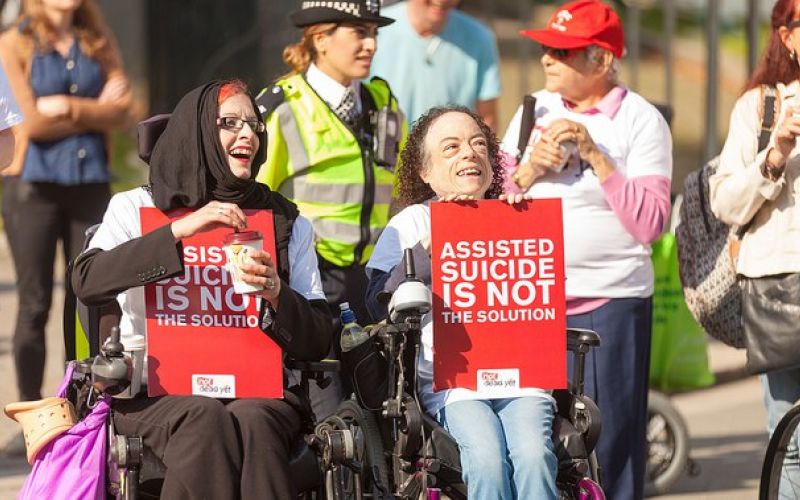
Legalising assisted suicide would imply the state “endorsing” NHS-funded deaths, at a time when simply one-third of palliative care is government-funded, MPs have been warned.
Dr Matthew Doré, honorary secretary of the Affiliation for Palliative Drugs of Nice Britain and Eire, stated legalised assisted suicide can be state-funded whereas two-thirds of palliative care was nonetheless funded by charities.
He advised the Commons well being and social care committee: “That’s the state primarily endorsing dying whereas not funding and paying for palliative care.”
Dr Doré stated legalisation was a “public security” situation, as a result of taking that step would “threat the broader majority of the inhabitants”.
He was giving proof to the committee as a part of its inquiry into assisted suicide.
He in contrast the proposed legalisation of assisted suicide to capital punishment, the place individuals who have been executed by the state have been subsequently discovered to be harmless, regardless of a “full judicial course of” that discovered them responsible “past affordable doubt” following “months of deliberation” by the authorized system.
Dr Doré pointed to diagnoses of motor neurone illness that had later proved to be mistaken, and he stated that analysis had steered that one in 5 older folks had been abused.
He advised the committee: “There are going to be incorrect deaths. So… what number of incorrect deaths justify… the suitable to pre-emptively kill your self early?”
He additionally warned that legalisation would imply palliative care would turn into “subservient” to assisted suicide in hospices, as he stated had occurred in Canada with its Medical Help in Dying programme.
And he stated that non-assisted suicides had risen sharply within the US state of Oregon after it legalised assisted suicide and “imbued within the tradition” that “there are circumstances wherein it’s not value dwelling”.
He added: “Legal guidelines are extra than simply guidelines. They ship cultural messages.”
The committee additionally heard on Tuesday from Helen Whately, the minister for care, who repeated the federal government’s long-established place that any change within the legislation was “one thing for parliament to resolve”.
She stated: “It’s a difficulty of conscience for particular person members of parliament.
“If the need of parliament is that the legislation on assisted dying ought to change, then authorities wouldn’t stand in its approach.”
She stated she was not conscious of any authorities discussions concerning the potential implications of one other a part of the UK legalising assisted suicide, with Scotland, Jersey and the Isle of Man all apparently transferring in that route.
Image: Not Useless But UK
A word from the editor:
Please think about making a voluntary monetary contribution to help the work of DNS and permit it to proceed producing impartial, carefully-researched information tales that target the lives and rights of disabled folks and their user-led organisations.
Please don’t contribute when you can’t afford to take action, and please word that DNS shouldn’t be a charity. It’s run and owned by disabled journalist John Pring and has been from its launch in April 2009.
Thanks for something you are able to do to help the work of DNS…







